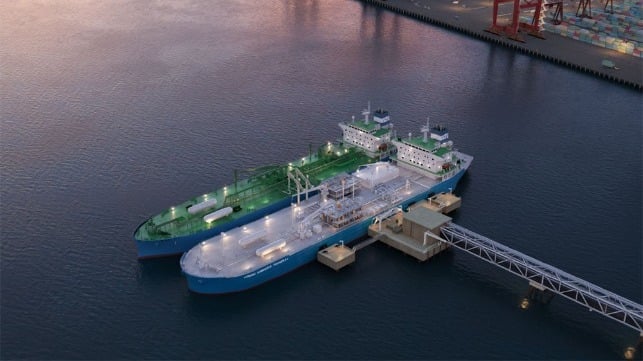Höegh Evi Plans Launch of Europe's First Hydrogen Import Terminal in Southern France
Key Ideas
- Höegh Evi, in partnership with La Nouvelle officials, is planning to launch one of Europe's first hydrogen import terminals at the newly developed deep-water port, aiming to drive the energy transition forward.
- The expansion of Port-La Nouvelle in the Occitanie Region will allow for the import of up to 210,000 tonnes of hydrogen per year by 2030, potentially becoming a vital hub for clean energy in Europe.
- Collaboration with European projects and gas pipeline operators will enhance the connectivity of the floating import terminal, promoting industrial growth and job opportunities in the region.
- The development is expected to strengthen the energy attractiveness of the Occitanie region and pave the way for the port to become an enabler in the green energy transition by accommodating new types of traffic.
Höegh Evi, a prominent player in floating energy infrastructure, has revealed plans to establish one of Europe's pioneering hydrogen import terminals at the newly constructed deep-water French Mediterranean port of La Nouvelle. The memorandum of understanding signed by Höegh Evi and La Nouvelle officials marks a significant step towards the development of this innovative facility. Erik Nyheim, the President & CEO of Höegh Evi, highlighted the strategic positioning of Port-La Nouvelle as an ideal entry point for hydrogen and low-carbon fuels, emphasizing the role of this initiative in propelling the energy transition in Europe.
The ambitious project, scheduled for completion in early 2026, will mark a milestone as France's first privately managed port developed by SEMOP, with energy serving as a primary focus area. The expansion plans include a substantial increase in port size and water depth to accommodate larger vessels, positioning Port-La Nouvelle as a pivotal Mediterranean port with diverse terminals.
The addition of a hydrogen terminal at Port-La Nouvelle is anticipated to accelerate the adoption of clean energy in Europe, facilitating the import of significant quantities of hydrogen from global producers. The collaboration between Höegh Evi, SEMOP, and other key stakeholders aims to establish strong connections with major hydrogen transport infrastructures, fostering industrial and energy growth in the Occitanie region.
By enabling the import of substantial hydrogen volumes by 2030 and supporting the green energy transition, the partners envision the terminal as a crucial contributor to enhancing the region's energy appeal and economic prospects. The collaborative efforts are focused on conducting feasibility studies and designing robust infrastructure within the port to ensure the successful implementation of the hydrogen import terminal.
